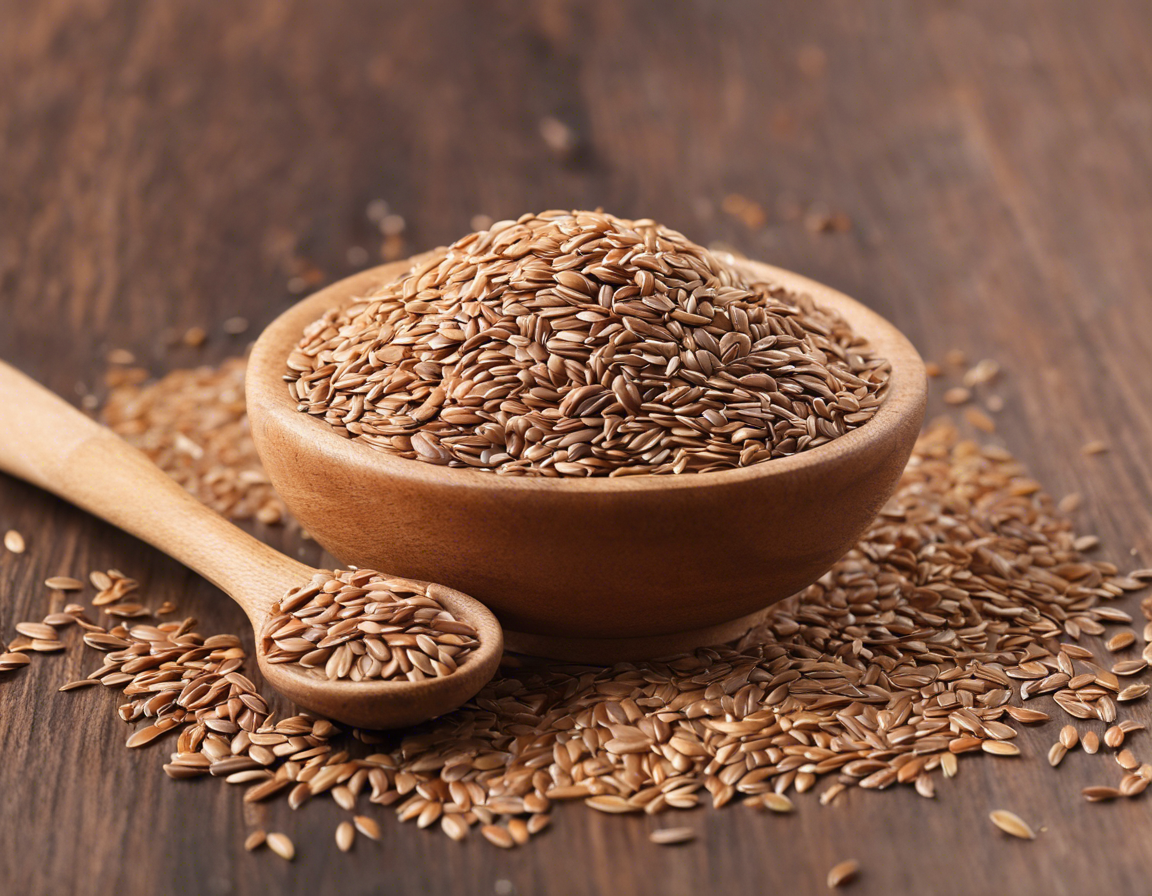Today, let’s delve into understanding flaxseed. Known as “अलसी” in Hindi, flaxseed is a popular superfood that has gained significant attention in recent years due to its numerous health benefits. Flaxseed is the seed of the flax plant, scientifically known as Linum usitatissimum, and has been cultivated for thousands of years for its nutritional and medicinal properties. In this article, we will explore the nutritional content, health benefits, culinary uses, and potential side effects of flaxseed.
Nutritional Content of Flaxseed
Flaxseed is a nutritional powerhouse, rich in essential nutrients that contribute to its many health benefits. It is an excellent source of omega-3 fatty acids, particularly alpha-linolenic acid (ALA), which is beneficial for heart health and reducing inflammation in the body. Flaxseed is also high in fiber, both soluble and insoluble, which supports digestive health and helps in regulating cholesterol levels. Additionally, flaxseed is a good source of plant-based protein, making it a valuable addition to vegetarian and vegan diets.
Health Benefits of Flaxseed
1. Cardiovascular Health
One of the most well-known benefits of flaxseed is its positive impact on heart health. The omega-3 fatty acids in flaxseed help lower blood pressure, reduce bad cholesterol levels, and prevent the formation of arterial plaques, thus lowering the risk of heart disease and stroke.
2. Digestive Health
The high fiber content of flaxseed promotes healthy digestion by supporting regular bowel movements and preventing constipation. It also acts as a prebiotic, feeding the beneficial bacteria in the gut and promoting a healthy gut microbiome.
3. Anti-Inflammatory Properties
The ALA in flaxseed possesses anti-inflammatory properties, which can help reduce inflammation in the body and alleviate symptoms of conditions such as arthritis, asthma, and inflammatory bowel disease.
4. Weight Management
Due to its high fiber and protein content, flaxseed can help promote feelings of fullness and satiety, making it a useful tool for weight management and controlling appetite.
Culinary Uses of Flaxseed
Flaxseed can be easily incorporated into a variety of dishes to enhance their nutritional value. Here are some popular ways to use flaxseed in the kitchen:
-
Ground Flaxseed: Grinding flaxseed makes it easier for the body to absorb its nutrients. Add ground flaxseed to smoothies, yogurt, oatmeal, or baked goods for a nutritional boost.
-
Flaxseed Oil: Flaxseed oil is a great source of omega-3 fatty acids. Use it as a salad dressing or drizzle it over cooked vegetables to enjoy its health benefits.
-
Flaxseed Meal: Flaxseed meal can be used as an egg substitute in vegan baking recipes. Mix 1 tablespoon of flaxseed meal with 3 tablespoons of water to replace one egg in a recipe.
Potential Side Effects of Flaxseed
While flaxseed is generally safe for consumption, some individuals may experience side effects, especially when consumed in large amounts. These side effects may include:
-
Digestive Issues: Consuming large quantities of flaxseed can cause digestive discomfort, such as bloating, gas, and diarrhea. It is important to start with small amounts and gradually increase intake to allow your body to adjust.
-
Allergic Reactions: Some people may be allergic to flaxseed and may experience symptoms such as hives, itching, or swelling. If you have a known allergy to flaxseed or other seeds, it is best to avoid consumption.
-
Interaction with Medications: Flaxseed can interact with certain medications, including blood thinners and hormone therapies. If you are taking any medications, consult with your healthcare provider before adding flaxseed to your diet.
FAQs about Flaxseed
1. Is flaxseed safe for everyone to consume?
Flaxseed is safe for most people, but individuals with certain medical conditions or allergies should consult with a healthcare provider before adding flaxseed to their diet.
2. Can flaxseed help with weight loss?
Due to its high fiber and protein content, flaxseed can aid in weight management by promoting feelings of fullness and reducing appetite.
3. How should flaxseed be stored to maintain its freshness?
Flaxseed should be stored in an airtight container in a cool, dark place to prevent oxidation. Alternatively, flaxseed can be stored in the refrigerator for longer shelf life.
4. Can flaxseed be consumed during pregnancy and breastfeeding?
Flaxseed is generally safe for consumption during pregnancy and breastfeeding and can provide essential nutrients like omega-3 fatty acids.
5. What is the recommended daily intake of flaxseed?
The recommended daily intake of flaxseed is around 1-2 tablespoons, which can be added to various foods and recipes to reap its health benefits.
In conclusion, flaxseed, or “अलसी”, is a versatile and nutrient-dense superfood that offers a wide range of health benefits. By incorporating flaxseed into your daily diet in various forms, you can boost your nutritional intake and support your overall well-being. Remember to start with small amounts to assess your tolerance and consult with a healthcare provider if you have any concerns about incorporating flaxseed into your diet.

